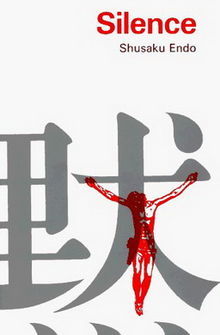TL;DR
"Silence" by Shūsaku Endō is a profound exploration of faith and doubt, focusing on a Portuguese priest's harrowing journey through 17th-century Japan amidst the brutal persecution of Christians.
What is Silence about
"Silence" delves into the existential struggles of a Portuguese Jesuit priest, Ferreira, who travels to Japan to find his mentor, Rodrigues, amidst rampant persecution of Christians. The narrative unfolds against the backdrop of historical events, presenting a gripping portrayal of faith, identity, and cultural dissonance. Endō, a Catholic novelist, crafts a tale that resonates with his own experiences of religious discrimination and personal suffering as he examines the silence of God in the face of human suffering. This poignant narrative challenges the reader to contemplate the nature of belief and the silence that can accompany it, making it a timeless piece of literature.
Top Silence Quotes
- "Silence is not just the absence of sound; it is the absence of God in our darkest hours."
- "To find God in silence is to confront the deepest fears of the human heart."
Who should read Silence?
This book is ideal for readers interested in historical fiction, religion, and philosophy. It offers profound insights into the complexities of faith, making it suitable for those seeking to explore the human experience of belief and suffering.
Silence Best Reviews
- "Silence is a masterful exploration of faith and doubt, capturing the essence of suffering in a beautifully poignant narrative." - Graham Greene
- "Endō's prose is subtle yet powerful, provoking thought on the complexities of faith and the silence of God." - The New York Times
People also liked these summaries
Silence FAQs
Is 'Silence' based on true events?
While 'Silence' incorporates historical elements and is set against real events in Japan's Christian history, it remains a work of fiction with a focus on exploring themes of faith and identity.
What major themes are present in 'Silence'?
The major themes include the silence of God in suffering, cultural conflict, the nature of faith, and personal sacrifice in the pursuit of belief.
